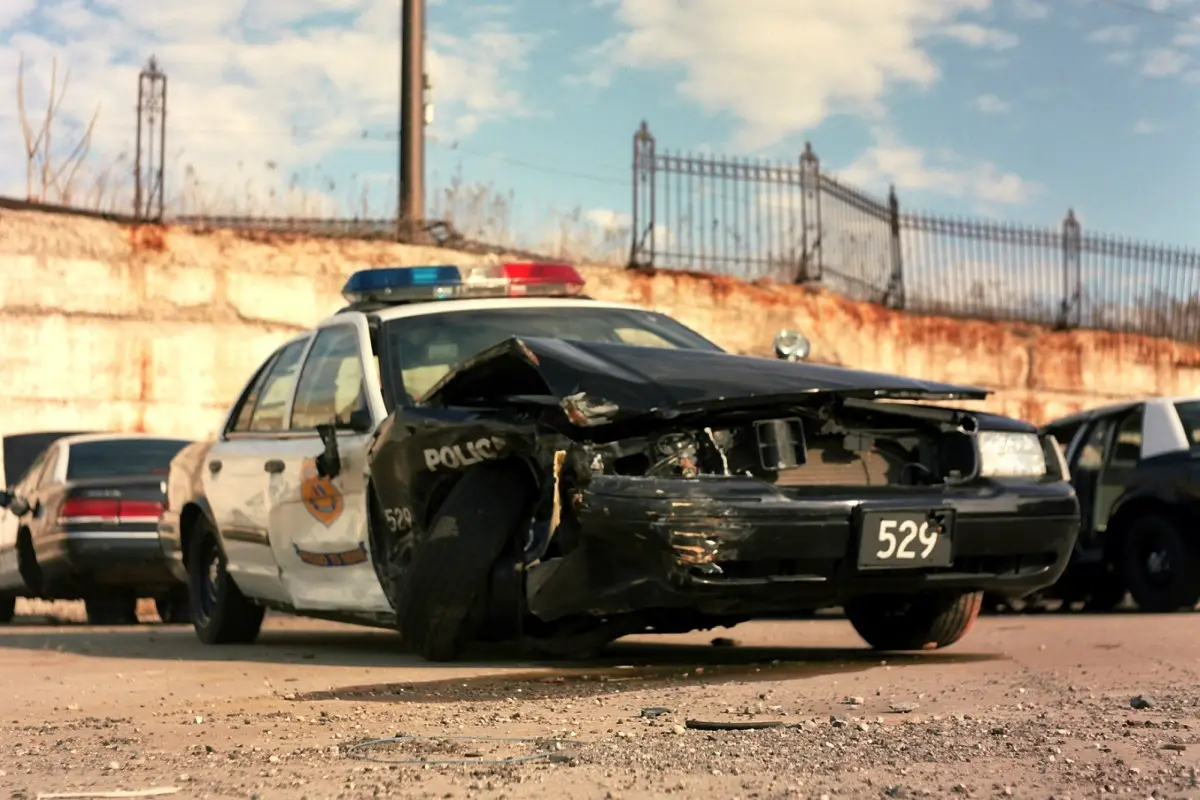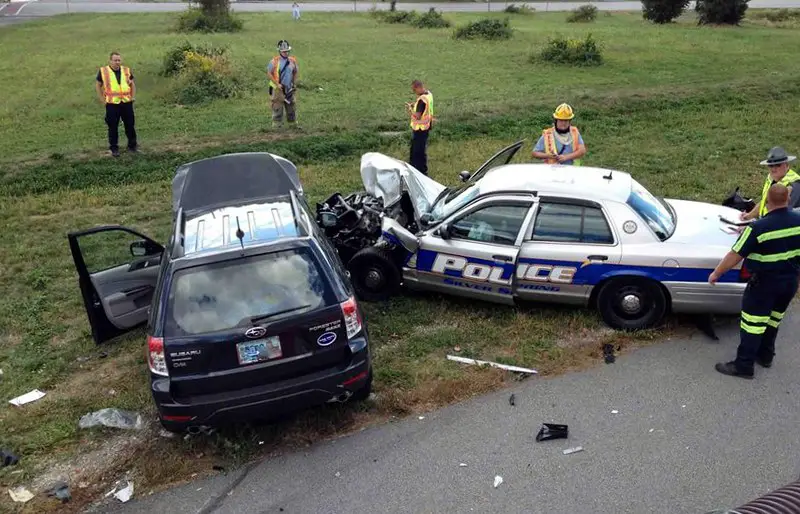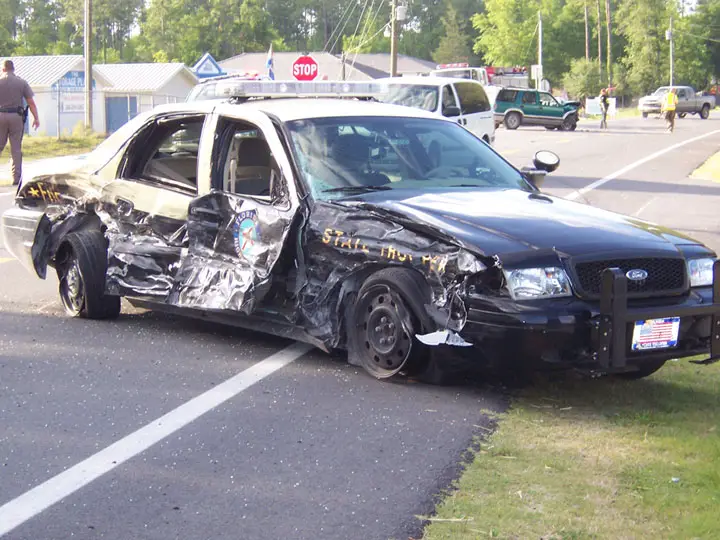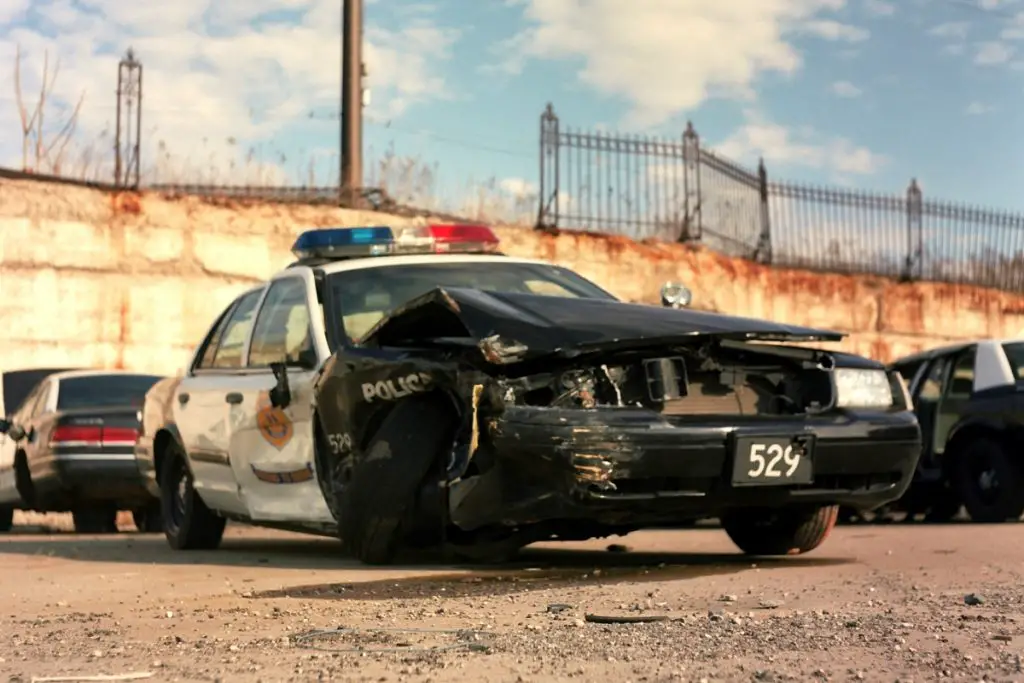In the event of a car accident, it can be difficult to know what to do and who to turn to for help.

This can be especially true when the other driver involved in the accident is a police officer.
Understanding the legal and practical considerations involved in such an incident is crucial for ensuring that your rights and interests are protected.
In this article, we will provide a detailed and comprehensive understanding of the legal and practical considerations involved in the event of a collision involving a police officer’s vehicle

Understanding the Legal Framework
A. Overview of the laws governing accidents involving police vehicles
Laws vary by state, but in general, when a police officer is involved in a collision while on duty, the incident is investigated by their department internally, and laws and regulations around the incident are determined by the law enforcement agency, not normal civil laws.
If the officer is off duty, the incident is typically handled like any other car accident, with the involved parties determining who is at fault and therefore liable.
B. How Liability is Determined in Such Cases
In cases where the police officer is found to be at fault for the accident, they may be held liable for any damages or injuries resulting from the collision.
Determining fault will be based on the specifics of the accident and the investigation.
The police department may also conduct an internal investigation to determine if any policies or procedures were violated.
C. Differences in legal treatment for on-duty and off-duty officers
The treatment of on-duty and off-duty officers can be different in terms of both criminal and civil liability.
If a police officer is on duty at the time of the accident, they may be protected by “sovereign immunity” which limits the amount of damages that can be claimed in a lawsuit.
If an off-duty officer was found to be negligent in causing the accident, they may be liable to the same extent as any other private citizen.
D. Role of Insurance in Covering Damages and Injuries
Most police departments carry liability insurance for their officers’ actions while on duty, and the department would typically be responsible for covering any damages or injuries.
If the accident was caused by an off-duty officer, their personal auto insurance policy would typically be responsible for covering damages and injuries.
It’s important to note that If a police officer is found to be at fault and on-duty, the department, and not the officer, would be held responsible for any damages or injuries resulting from the collision.
In such situations, the process of claiming compensation may be more complex and it’s recommended to consult with a lawyer who can assist in navigating the process.

Gathering Evidence and Filing a Claim
A. Steps to take immediately following the accident
It’s important to take the following steps after an accident involving a police officer, whether on or off duty:
- Seek medical attention if you or anyone involved is injured
- Call the police and request a copy of the accident report
- Take photographs of the accident scene and any damage to the vehicles
- Get the contact and insurance information from the police officer and any other parties involved in the accident.
B. Importance of collecting and preserving evidence
The evidence you collect at the scene of the accident and in the days following the collision can be crucial in determining who is at fault and in supporting your claim for damages.
C. How to file a claim and what documentation is required
Depending on whether the police officer was on or off duty, the process for filing a claim may vary.
Contacting the police department or the officer’s insurance company, and providing them with the necessary documentation, such as the accident report, photographs of the scene, and medical bills, may be necessary to start the claim process.
If a police officer is on duty, and at fault it may be a good idea to seek legal advice before filing a claim, as the process can be more complex.
D. Tips for dealing with the insurance company and the police department
It’s important to be aware that insurance companies and the police department may not always have your best interests in mind.
They may try to settle the claim quickly and for less than you are entitled to.
It’s important to be patient, document everything, and seek legal advice if necessary.
Potential Outcomes and Settlements
A. Discussion of the different possible outcomes of a claim or lawsuit
- The insurance company may agree to settle the claim out of court, and the parties may reach an agreement on the amount of damages to be paid.
- If the case goes to trial, a judge or jury may determine that the police officer was at fault and award damages to the plaintiff.
B. How the amount of damages is determined
The amount of damages awarded will depend on the specifics of the case.
Damages may include compensation for medical expenses, property damage, lost wages, and other financial losses as well as non-economic damages such as pain and suffering.
C. Factors that may affect the outcome of a claim
- The evidence gathered at the scene and during the investigation,
- The severity of the injuries or damages suffered,
- The laws and regulations specific to the state where the accident occurred.
D. Information on mediation, arbitration, and trial options
Mediation, arbitration, and trial are all options that may be available for resolving a claim involving a police officer.
Mediation is a voluntary process where an impartial third party helps the parties reach a settlement.
Arbitration is similar to mediation but is binding, meaning that the parties must accept the decision.
If the parties are unable to reach a settlement, a trial may be necessary. It’s recommended to seek legal advice before choosing a path to resolve the claim.

Conclusion
Being involved in an accident with a police officer can be a confusing and stressful experience, but it’s important to understand the legal and practical considerations involved.
Knowing your rights, gathering evidence, and seeking legal advice can help ensure that your interests are protected.
The process for filing a claim and the potential outcomes vary, depending on the laws and regulations of your state.
By being prepared and taking the necessary steps, you can maximize your chances of obtaining a fair settlement.
Knowing these tips will also help you to make informed decisions about how best to proceed with any legal action.
